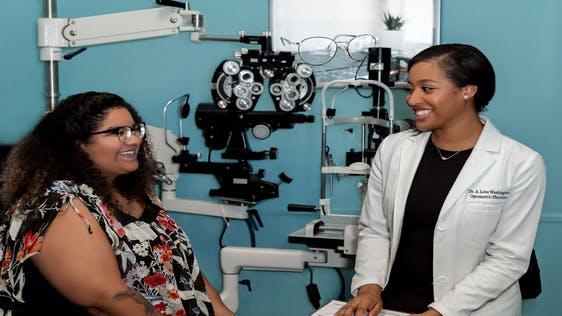Corneal disease is a serious condition that can cause clouding, distortion, scarring and eventually blindness. There are many types of corneal disease. The three major types are Keratoconus, Fuchs’ endothelial dystrophy, and Bullous keratopathy. All Corneal dystrophies cause a buildup of foreign material in one or more layers of your cornea. Over time, your vision may become cloudy or blurry.
Symptoms of the 3 Major Corneal Diseases
- Keratoconus is a weakening and thinning of the central cornea. The cornea develops a cone-shaped deformity. Progression can be rapid, gradual or intermittent. Keratoconus usually occurs in both eyes, but can occur in only one eye. With keratoconus, as the cornea protrudes or steepens, vision becomes increasingly blurred and contact lens wear, which is often an early treatment for the disease, becomes difficult. The contact lens may not stay on the eye due to the irregular shape of the cornea.
- Fuchs’ endothelial dystrophy is a hereditary abnormality of the inner cell layer of the cornea called the endothelium. The purpose of this layer is to pump fluids out of the cornea, keeping it thin and crystal clear. When the endothelium is not healthy, fluids are not pumped out and the cornea develops swelling, causing it to become cloudy and decrease vision. A person with Fuchs’ endothelial dystrophy may first notice glare with lights at night or in bright sunlight. As these conditions progress, vision may be foggy or blurry in the morning and clear up as the day progresses. As the diseases further progress, vision will stay blurrier later into the day and eventually may not clear at all.
- Bullous keratopathy is a condition in which the cornea becomes permanently swollen. This occurs because the inner layer of the cornea, the endothelium, has been damaged and is no longer pumping fluids out of the tissue.
What we’re doing to help patients with Keratoconus
We offer the following specialty contact lens options for correcting Keratoconus:
- Rigid Gas Permeable (RGP) contact lenses
- Piggy Back Lenses
- Toric Lenses
- Scleral Lenses
How to get started
For more information on the treatment for Keratoconus and other Corneal Diseases, schedule an appointment with one of our eye doctors.
Call us at (407) 292-9812 or click HERE to schedule your appointment.[/vc_column_text][/vc_column_inner][/vc_row_inner][/vc_column][/vc_row]

